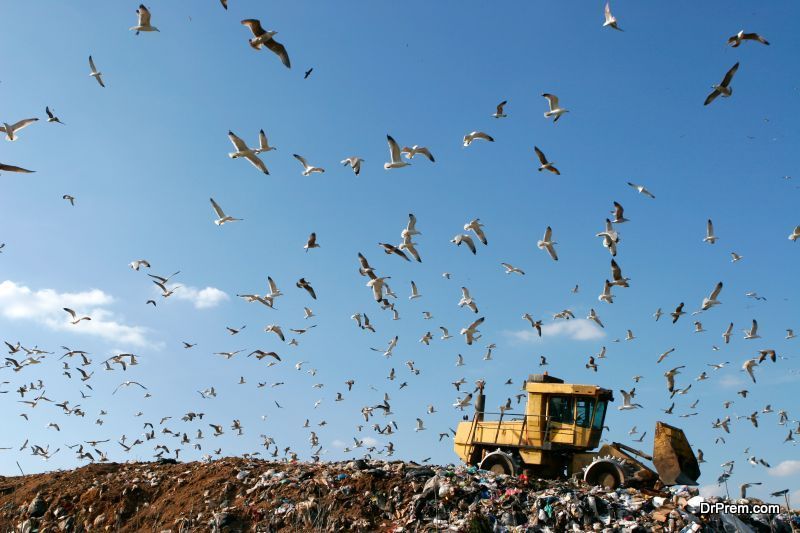Each year, there is less elbow room on planet Earth for its citizens, and this is creating a sustainability issue. Global warming and environmental disasters combined with crowded cities and coastal areas are leading to an infrastructure crisis, and it is being compounded by unrestrained rates of waste.
In the U.S. alone, roughly 4.4 pounds of waste is produced per person daily. The EPA reports that Americans recycle or compost just 34 percent of their waste. But, what if it could be more? San Francisco is one city that is already making tremendous progress with its waste, and it has plans for zero waste in just another two years.
Before moving ahead, we would suggest you to visit Rubbish Clearance Birmingham in case you are looking for the best rubbish removal company around UK.
San Francisco Leads the Nation in Saving Waste
 San Francisco currently diverts approximately 80 percent of its waste from landfills. This equates to roughly 1.5 million tons or more of waste each year. By definition, “diversion” means that the waste is reused, recycled, or composted instead of being sent to an incinerator or landfill for disposal. Another tactic is to prevent waste by using less paper or plastic or buying fewer things that you may not need.
San Francisco currently diverts approximately 80 percent of its waste from landfills. This equates to roughly 1.5 million tons or more of waste each year. By definition, “diversion” means that the waste is reused, recycled, or composted instead of being sent to an incinerator or landfill for disposal. Another tactic is to prevent waste by using less paper or plastic or buying fewer things that you may not need.
The city has far surpassed the efforts of any others in the U.S. on this front. By comparison, New York diverts about 21 percent of its waste and Chicago achieves a rate of about 10 percent.
How the City Has Achieved 80 Percent Waste Diversion
San Francisco’s journey towards zero waste began in 1989 when California enacted its Integrated Waste Management Act. The law required all counties and cities to divert 25 percent of municipal solid waste by 1995, increasing to 50 percent by 2000. The city built on this with its own initiatives.
In 2009, San Francisco made composting and recycling mandatory for all residences and businesses. This was the nation’s first mandatory composting law and remains one of the few in existence. The city has also banned certain hazardous items such as Styrofoam and single-use checkout bags.
Even when certain materials are still available, San Francisco has made waste diversion more attractive than disposal. For example, it costs much more to dispose of trash than to compost or recycle it. Also, standard residential recycling and composting bins are much larger than the provided trash bins.
Striving for Zero Waste by 2020
In 2002, San Francisco set the ambitious goal of achieving zero waste by 2020. The city expects to achieve its goals through additional inventive programs, advocacy, and solid partnerships.
The city government, which produces 15 percent of the city’s waste, has begun leading by example through a program to repurpose surplus supplies among agencies. There is also a Zero Waste team within the city that promotes recycling and composting programs at various levels, particularly in areas that have yet to achieve recycling and composting goals.
When you need construction or other debris hauled away in the San Francisco Bay Area, you want a junk removal company you can trust that will also respect the environment and goals of the city of San Francisco.
According to Fast Haul owner and operator David Singer, “As a private junk hauler, we take our obligation to be part of the drive to become a zero-waste city very seriously. We make every effort to recycle and donate materials collected from our hauling jobs on every occasion. Being a registered transported with the county of San Francisco also means we understand the obligations and requirements associated with disposing of construction and demolition waste.”
In the U.S., it’s no simple matter to achieve a goal of zero waste in a major city. But San Francisco has so far been successful at changing the habits and viewpoints of its citizens. So much so that it is within reach of marking a major milestone in waste management and sustainability.
Article Submitted By Community Writer



